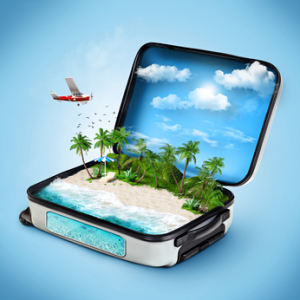
For most people travel is an eagerly anticipated and highly enjoyable experience. Exploring new places, experiencing different cultures, eating exotic cuisines, and visiting family and friends who live afar are all good for the mind, body and soul. And the thrill of travel doesn’t have to change when you are a senior or are travelling with one. All you need is a little extra planning and preparation so the trip can be all about pleasure and enjoyment.
Here are five important steps for you to take:
Check in with the doctor before planning the trip. Before you begin to plan the trip in earnest, it is important to consult with your senior’s physician to determine if they think the trip can be undertaken and what, if any, special precautions must be taken. Discuss physical activity, dietary changes, and daily routine, and be sure to obtain prescriptions for any medicines the senior will need. If you lose the medicines you will have the prescriptions with you and can refill at a pharmacy. Consider wearing supportive socks or stockings to help your circulation when sitting for extended periods of time on the airplane or train.
Plan ahead and be prepared for travel “hiccups.” If unforeseen travel mishaps don’t occur then count yourself lucky! But as we all know travel can be complicated and every eventuality should be considered in advance of setting off. Purchasing trip travel insurance is strongly suggested and you may even want to consider adding pre-existing illness coverage. Book all transportation ahead of time, confirm lodging, use Google maps to get an idea of what stores and sites are located near your destination and, in general, leave as little to chance as possible. It’s one thing to arrive at a hotel and find that they “lost” your reservation. It’s another when you have a very tired senior with you who might have limited mobility and stamina.
Pack light. Remember that it is often slow going when travelling with a senior. You may need to provide assistance when they are walking, and you must be able to focus your attention on their needs rather than on cumbersome luggage.
Plan a schedule that allows for downtime. It is very easy to get exhausted on a trip what with the excitement of seeing the sights or visiting with friends and family. Don’t try to do too much in one day. Allow time for leisurely meals, casual breaks, and even a nap to get refreshed for the evening. Always carry water with you to stay hydrated.
Travel documents, passports, daily medicines, prescriptions, insurance cards, and information about medical facilities in the locations in which you will be staying should be in a bag that is both secure (consider a
small combination lock) and also easy to access. It is also advisable to leave copies of these documents at home with a trusted individual, should they get lost or misplaced, as well as copies in your hotel safe while out sightseeing.
As they say, an “ounce of prevention” can go a long way in making the trip a success. Don’t scrimp on the preparations and you will return with memories that last a lifetime.




